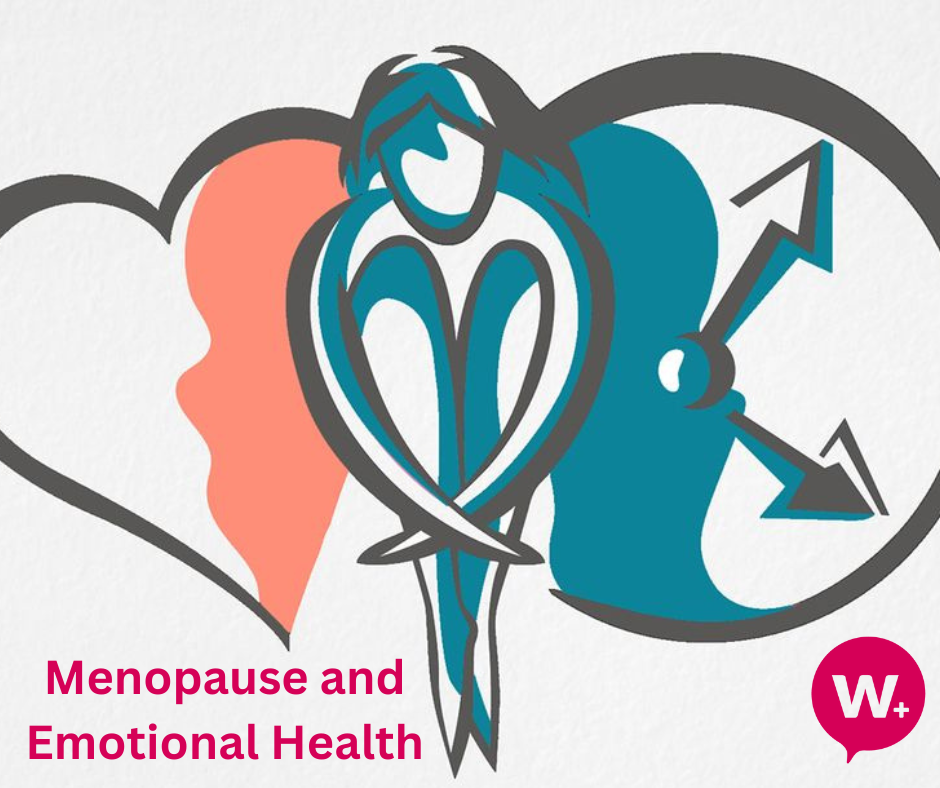Menopause is a significant event in a woman’s life. It is a natural biological process when the reproductive hormones decrease considerably and the menstrual cycles stop.
It can be a difficult phase to manage & cope up with. Effects of menopause begin at perimenopause and continue even after menopause has set in.
Changes that can be noticed in mental health due to menopause and peri-menopause
Since estrogen and progesterone levels are low, the impact on the emotional and mental state is remarkable.
It can cause –
- Anxiety
- Sadness
- Irritability, agitation, anger outbursts
- Sleep disturbances and palpitations in-turn increase the frustration levels
- One may also experience poor ability to focus, restlessness, forgetfulness, confusion
- The hormonal changes also affect one’s self confidence and sense of being worthy. One can feel less liked, less valued by near and dear ones.
- Not to forget menopause may coincide with other changes in family structure- children moving out for career or marriage prospects.
- Feelings of being ignored, isolated and lonely may increase.
WHAT CAN HELP?
How can you help yourself –
Regulate sleep. Sleep in a dark, quiet, cool room.
Practice relaxation techniques – yoga, meditation, tai chi, breathing exercises. An expert can guide you better in how to gain advantage from these exercise forms.
Regular exercises, brisk walk, sport, dance help with moods and bone health.
Have healthy and balanced diet, with all minerals and vitamins. Include additional sources of Calcium, Vitamin-D, Vitamin-B 12, Iron. Consult your doctor for additional supplements. 6 monthly physical check-ups and follow-ups help.
Connecting with other women going through menopause, via support groups or therapy groups or social media groups may help. Talking about, and listening to experiences which are similar gives a sense of not being alone in this phase.
Engage yourself in a constructive active hobby. Set aside time for yourself and do things that you like.
Manage stress.
Set realistic goals for yourself. Take it easy when it comes to expectations from yourself.
Try not judging yourself, knowing that you are going through changes at multiple levels physiologically.
Involve in volunteer/ community work.
Talk to friends, family. Spend time with them in activities, gatherings and outings.
Choose therapy if this becomes difficult to manage by all the efforts.
On Healthtalk.org you can watch videos of women living with menopause and what helped them.
How can family help and support someone going through hormonal changes of menopause
Keep open communication with the member going through menopause. Listen more. Don’t shut them off when they are wanting to talk.
Educate yourself about changes to expect when your parent/ partner is going through menopause.
Opt for couple’s therapy where both partners feel safe to be themselves and talk about the challenges in the relationship.
Changes in sex life- add aids that can help. Eg: lubricants. Talk with a sex therapist.
Let them feel in control of little situations.
Be encouraging and motivating.
Do not criticize/ find faults. The woman is dealing with self doubt and low confidence. She doesn’t feel sure of her ability to do simple things.
Appreciate her and remind her that she is wanted, loved and cared for.






,